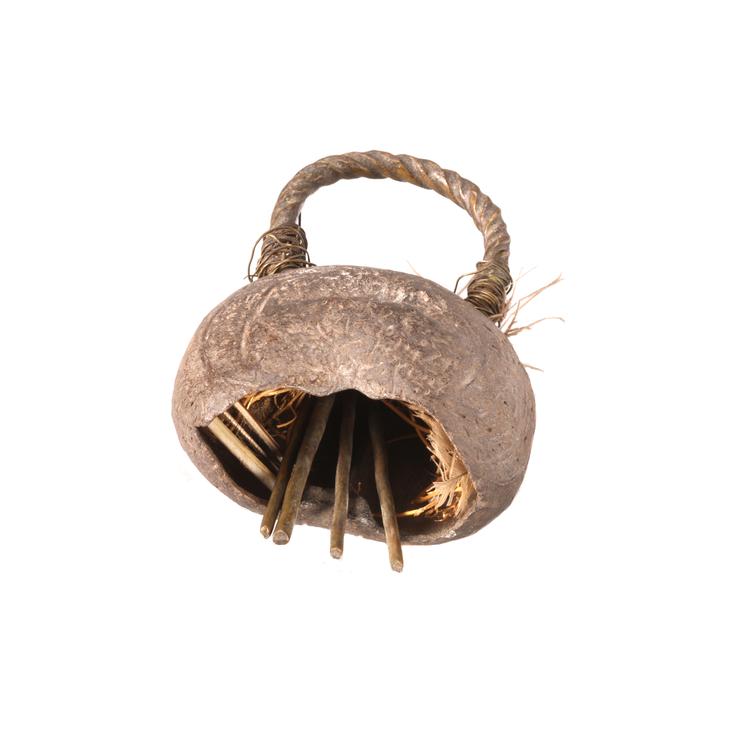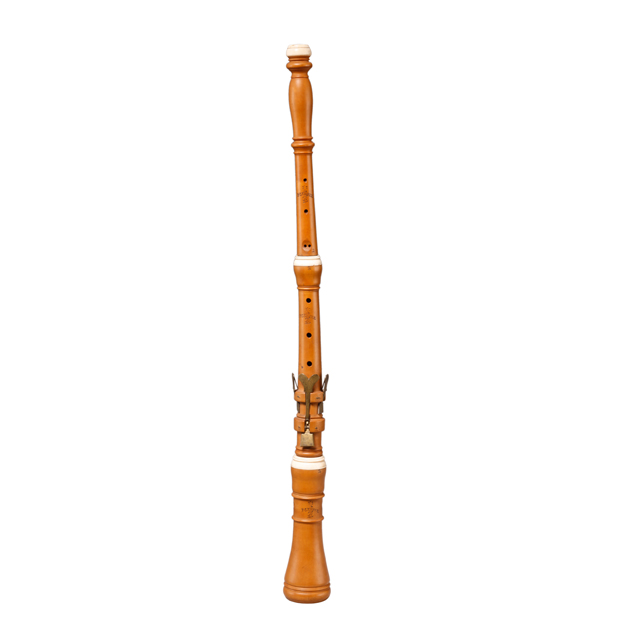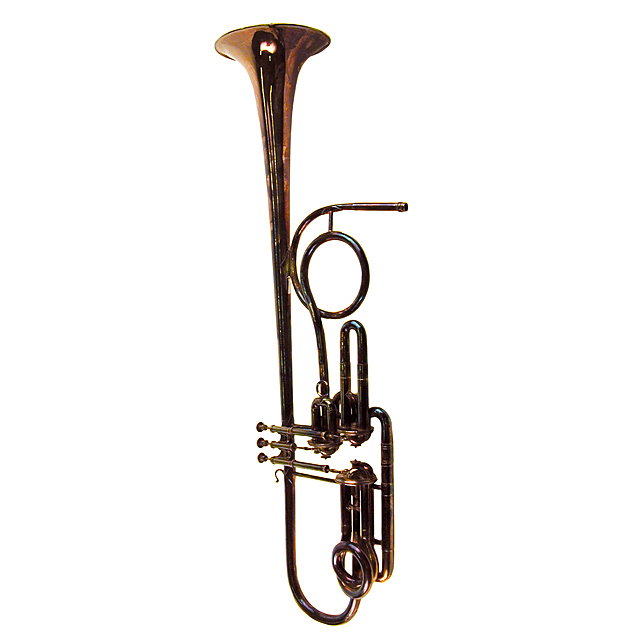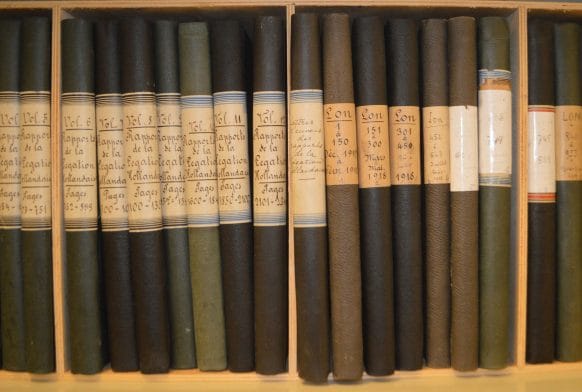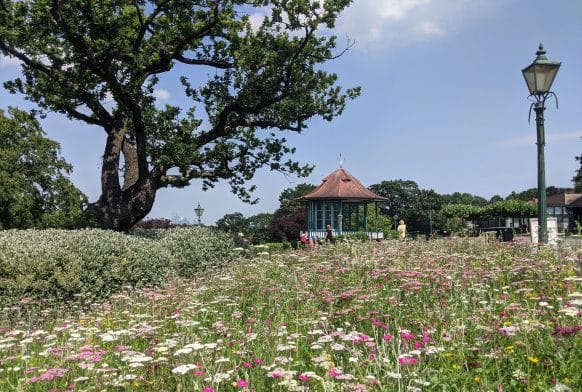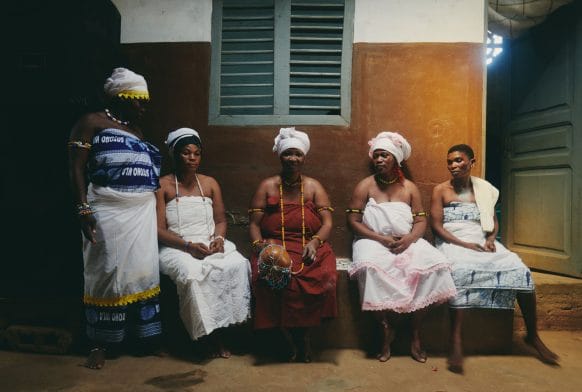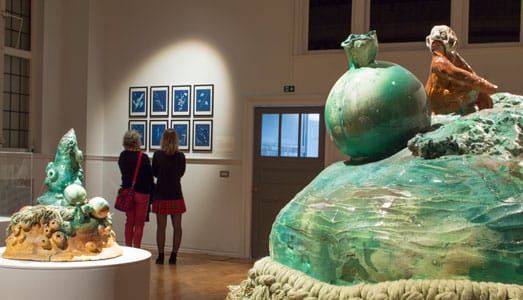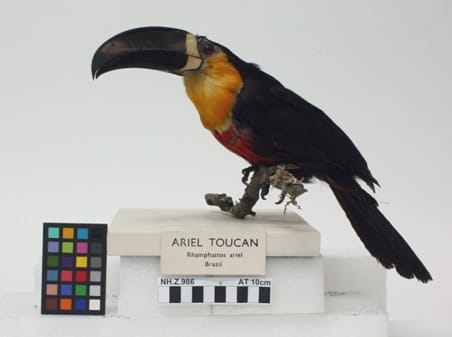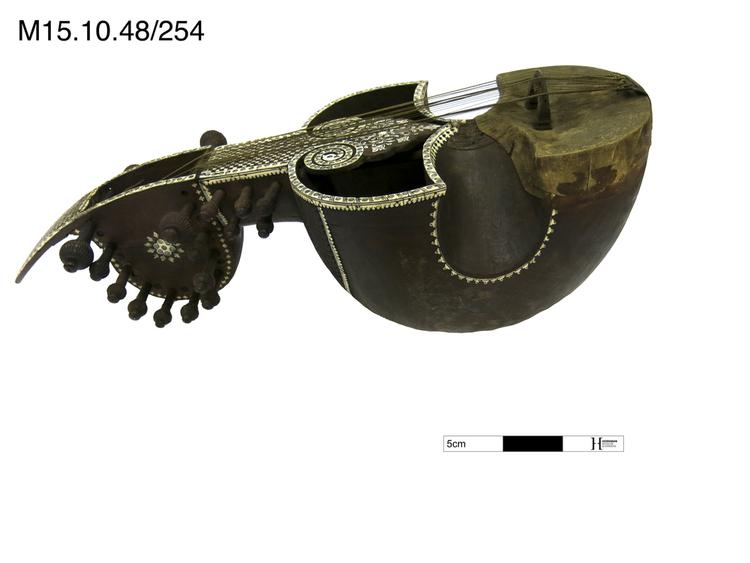
Sarinda, double-chested lute. A large instrument with an almost hemispherical body; the sides contract at the waist to form a narrow waist, flanked by curved bays. The round peg box carries 20 pegs set laterally, while another four are set into the side of the neck on the player's right. The finial is leaf-shaped and bends backwards. A low fingerboard is set flush with the sides of the neck and projects over the open upper bout in a festooned heart shape. The finial, fingerboard and its extension are decorated overall with bone inlay, while the edges of the upper part, from the waist up, are bordered with inlaid patterns of bone. There is carved decoration at the shoulder. The lower bout is covered with a parchment membrane glued to the ribs. The bridge is arched and carries four gut strings on the top and 20 wire sympathetic strings through a lower stage. The strings are all tied to a metal tail-piece which slots over a knob at the end of the instrument.
This type of instrument is identified as 'Bengal sarinda' by Joep Bor in 'The voice of the Sarangi'. (Bombay, Journal of the National Centre of Performing Arts Vol. XV, 3 & 4 and Vol. XVI, 1, September, December 1986 and March 1987) p.14 and illustration no. 4, p.5.



